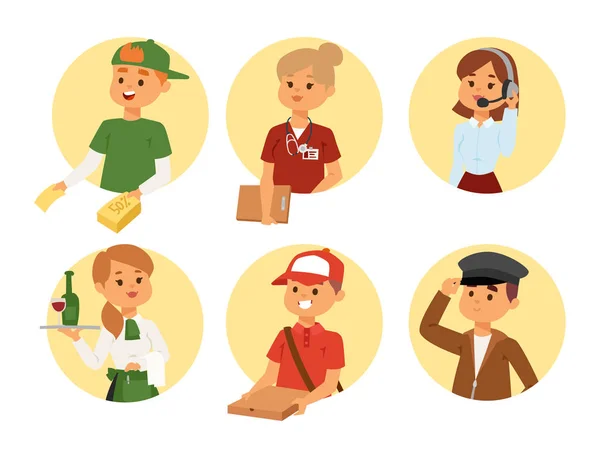
Seasonal jobs are those short bursts of work that pop up during certain times of the year. Think of it like businesses opening extra doors when things get busy. Shops, farms, hotels, and even amusement parks need more people when crowds come in. It isn’t a permanent arrangement but a smart way to keep everything running smoothly when demand spikes.
A lot of industries depend on these jobs. Retail stores need more hands during the holiday shopping rush. Farms bring in extra workers when it’s time to harvest. Resorts and tourist spots get busier when the weather is right for travel. The work is temporary, but it keeps the economy buzzing and gives people a chance to earn and gain experience.
Seasonal jobs come in all shapes and sizes. Some last just a few weeks, others stretch across months. Some are perfect for students looking for work during breaks, while others attract people who prefer short-term gigs over full-time commitments.
How the Seasonal Job Game Works
Seasonal work usually follows a simple pattern. A business gets busier at a certain time of year, they hire extra people to help, and when things quiet down, the contract ends. These jobs might be full-time or part-time, depending on how intense the season is. For example, a ski resort might need people working long hours every day, while a small shop might just need extra help on weekends.

The best part is the flexibility. You can often pick shifts or work hours that fit your schedule. Contracts are usually clear about how long the job will last. Employers want things to move fast, so the hiring process tends to be quicker too.
Some people take on seasonal work just once a year, while others make it a routine. It can be a side hustle, a way to fill a gap between bigger plans, or even the first step into a new career.
Where the Action Happens
Seasonal jobs are everywhere, but a few industries stand out. Retail is one of the biggest. Stores get crowded during holidays, and they need extra staff to handle sales, packaging, and customer support. You’ll see a lot of hiring around Christmas, New Year, Eid, and Black Friday.
Agriculture is another big one. Farms bring in extra hands during harvest time to pick fruits, vegetables, and other crops. These jobs can be outdoors, fast-paced, and very hands-on, but they’re also a great way to earn during busy farming months.
Tourism and hospitality thrive on seasonal workers too. Hotels, resorts, theme parks, and event venues need more people when travelers flood in. Even concerts, festivals, and fairs open up short-term positions for crowd control, ticketing, and food service. Wherever there’s a seasonal boom, there’s usually a job waiting to be filled.
Why Businesses Love Seasonal Hiring

For businesses, seasonal hiring is like flipping on an extra engine when things speed up. They get to bring in more people when demand is high without keeping a large payroll all year long. This keeps costs low and operations smooth. A clothing store during the holiday rush can’t survive with just its regular staff. They need more hands at the counter, in the stockroom, and at the packing station.
Seasonal workers also give employers a chance to test the waters. Companies can spot talented people during busy periods and bring them on permanently later. It’s a smart way to find good fits without committing right away. Plus, flexible staffing means they can scale up or down depending on how the season goes.
In industries like agriculture, tourism, and retail, this approach isn’t a luxury. It’s survival. Without extra workers at the right time, businesses lose opportunities, fall behind on orders, and watch revenue slip away. Seasonal hiring fills those gaps and keeps everything moving.
What’s in It for the Workers
Seasonal work isn’t just good for companies. It can be a real win for workers too. If you want short-term work without long commitments, it’s perfect. Many people pick up seasonal jobs during school breaks, after exams, or when they just need a little extra cash.
Flexibility is a big plus. These jobs often offer shift options, so you can work mornings, nights, or weekends depending on what suits you. It’s also a way to build skills fast. Even short stints teach you how to work with teams, handle pressure, and manage customers.
And sometimes, what starts as a temporary gig turns into something more. Employers love keeping good people. If you show up on time, work hard, and keep a good attitude, you might get asked to stay on. A lot of full-time employees in retail and hospitality started this way.
The Not-So-Fun Side of Seasonal Work

Seasonal jobs do come with their share of drawbacks. The biggest one is that they’re temporary. When the season ends, the job usually does too. That means no guaranteed income once the busy period is over. For someone relying fully on the paycheck, that can be tricky to manage.
Benefits are often limited as well. Many seasonal roles don’t include things like health coverage or paid leave. That’s because the contracts are short and focused on covering peak periods, not long-term employment.
There’s also a bit of adjustment that comes with hopping between jobs. Learning new routines, meeting new teams, and constantly shifting schedules can be tiring. It works well for some people, but not for everyone.
Landing That Seasonal Gig
Seasonal jobs move fast. Employers want people in place before the rush starts, so timing matters. The best time to apply is usually a few weeks or even months before the busy period begins. Retailers start looking for holiday staff as early as September. Farms post harvest jobs before picking season kicks off. Resorts begin hiring well ahead of summer or winter travel peaks. If you get in early, you’ll have more options to choose from.
A clean, simple resume helps. Most seasonal employers care more about reliability and attitude than long lists of achievements. Highlight any customer service, teamwork, or hands-on experience you’ve had. Even school projects or volunteer work can show you’re ready to handle fast-paced environments.
When you get the interview, the key is to be flexible. Let them know you’re willing to work shifts and learn quickly. Employers remember people who make their lives easier during a busy season. That’s how temporary workers often get invited back year after year.
Know Your Rights Before You Sign

Even though seasonal jobs are temporary, your rights as a worker still matter. You should always have a clear contract or offer letter that outlines your pay, working hours, and the duration of your employment. This protects both you and the employer.
Seasonal workers are entitled to fair wages, including overtime pay when applicable. If the job involves long shifts or public holidays, check how those hours will be compensated. Basic workplace safety rules apply too. Just because the job is short-term doesn’t mean the standards are lower.
It’s also smart to understand how taxes work for these roles. In most cases, employers will deduct taxes from your paycheck the same way they do for permanent employees. Keeping track of your pay stubs helps avoid surprises later.
How Seasonal Jobs Keep the Economy Moving
Seasonal employment is more than just a side hustle trend. It’s a major engine for the economy. Retail stores depend on temporary staff to manage the surge in holiday shoppers. Farms need extra hands to get produce out of the fields on time. Resorts rely on seasonal workers to keep up with crowds during peak vacation months. Without them, many industries would simply stall during their busiest periods.
This kind of work also opens doors for people who may not be looking for full-time roles. Students, retirees, travelers, and part-timers often jump in when businesses need them most. That flexibility keeps the labour market fluid and supports industries that run on seasonal demand.
In some regions, entire communities benefit from seasonal hiring. Festivals, harvests, and tourism peaks bring money into towns and create a cycle that boosts local economies. Seasonal workers might move on when the rush is over, but the impact they leave behind is real and lasting.
Turning a Temporary Gig into Something Bigger

A seasonal job doesn’t have to stay just a seasonal job. Many people use these short-term roles as stepping stones to something long-term. Employers notice workers who show up, stay reliable, and handle the rush without drama. If you build a good reputation during the busy months, there’s a solid chance of being asked to stay on after the season ends.
Think of it like a real-time audition. Seasonal work gives you a chance to learn how the company operates, meet key people, and prove your value. Even if a permanent role isn’t available right away, strong references from a seasonal employer can help you land your next opportunity faster.
Another advantage is skill-building. Whether it’s handling customers, working with inventory systems, managing time in high-pressure settings, or leading small teams, the experience stacks up. These are transferable skills that employers across industries value. A short gig in a retail store or a resort can set the stage for a bigger role in sales, management, or hospitality later.
Seasonal jobs can also help shape career choices. You might discover you enjoy working in a fast-moving environment. You might learn what kind of work culture suits you best. Or you might simply build a strong network of people who can open doors in the future.


